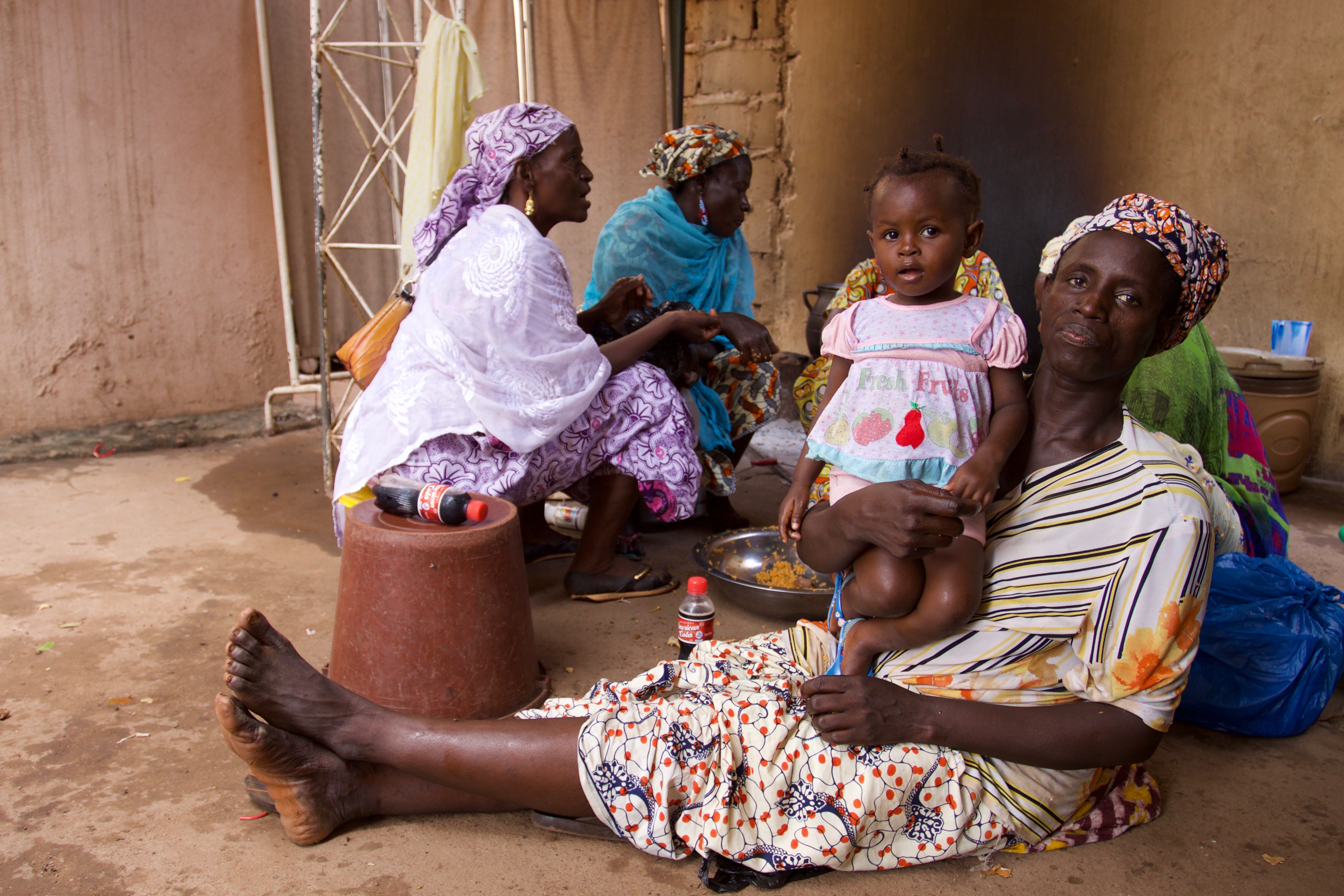
Mission
GAIA Vaccine Foundation’s* mission is to reduce the incidence of infectious diseases that disproportionately affect women and their families in the developing world, and to promote the development of globally relevant, globally accessible vaccines that can be distributed on a not-for-profit basis in the developing world. GAIA Vaccine Foundation activities are centered on four themes: education, prevention, access to care, and vaccination.
Life Challenges of the Women Served
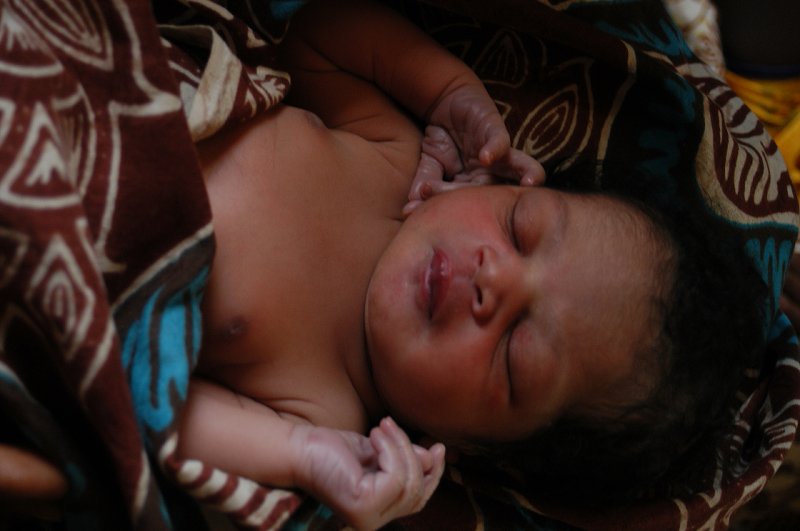 GAIA Vaccine Foundation provides, serves, and works in collaboration with the community in Sikoro, Bamako, Mali. The HIV infection rate in Mali is low when compared to other locations in Africa, however the infection disproportionately impacts women. UNAID states that 72,000 Malian women and girls over the age of 15 were living with HIV in 2017. Nearly 2,000 children are newly infected with HIV in Mali every year, due to mother-to-child transmission. (Newborn HIV is 100 percent preventable with mother-to-child transmission prevention). Many young women get pregnant and become HIV+ during their first sexual encounters. In 2016, the year for which the most recent data is available, Mali had nearly 6,000 new HIV infections and more than 6,000 AIDS-related deaths. There were 110,000 people living with HIV in Mali in 2016, among whom only about one-third were able to (or willing to because of the associated stigma) access treatment.
GAIA Vaccine Foundation provides, serves, and works in collaboration with the community in Sikoro, Bamako, Mali. The HIV infection rate in Mali is low when compared to other locations in Africa, however the infection disproportionately impacts women. UNAID states that 72,000 Malian women and girls over the age of 15 were living with HIV in 2017. Nearly 2,000 children are newly infected with HIV in Mali every year, due to mother-to-child transmission. (Newborn HIV is 100 percent preventable with mother-to-child transmission prevention). Many young women get pregnant and become HIV+ during their first sexual encounters. In 2016, the year for which the most recent data is available, Mali had nearly 6,000 new HIV infections and more than 6,000 AIDS-related deaths. There were 110,000 people living with HIV in Mali in 2016, among whom only about one-third were able to (or willing to because of the associated stigma) access treatment.
The traditional family structure in Mali may include one man and several wives. HIV infection may be brought into a marriage by either partner or acquired by one individual and brought into the family, affecting all sexual partners, and risking transmission (during pregnancy) to many children. Women in Mali are also at higher risk than men of acquiring HIV infection due to the circumstances such as female genital cutting, early marriage, and other factors. They are often identified as being HIV-infected as they are tested when they become pregnant and seek prenatal care. In Mali, HIV disproportionately affects women and girls who are more likely to become infected each year and die more often from AIDS.
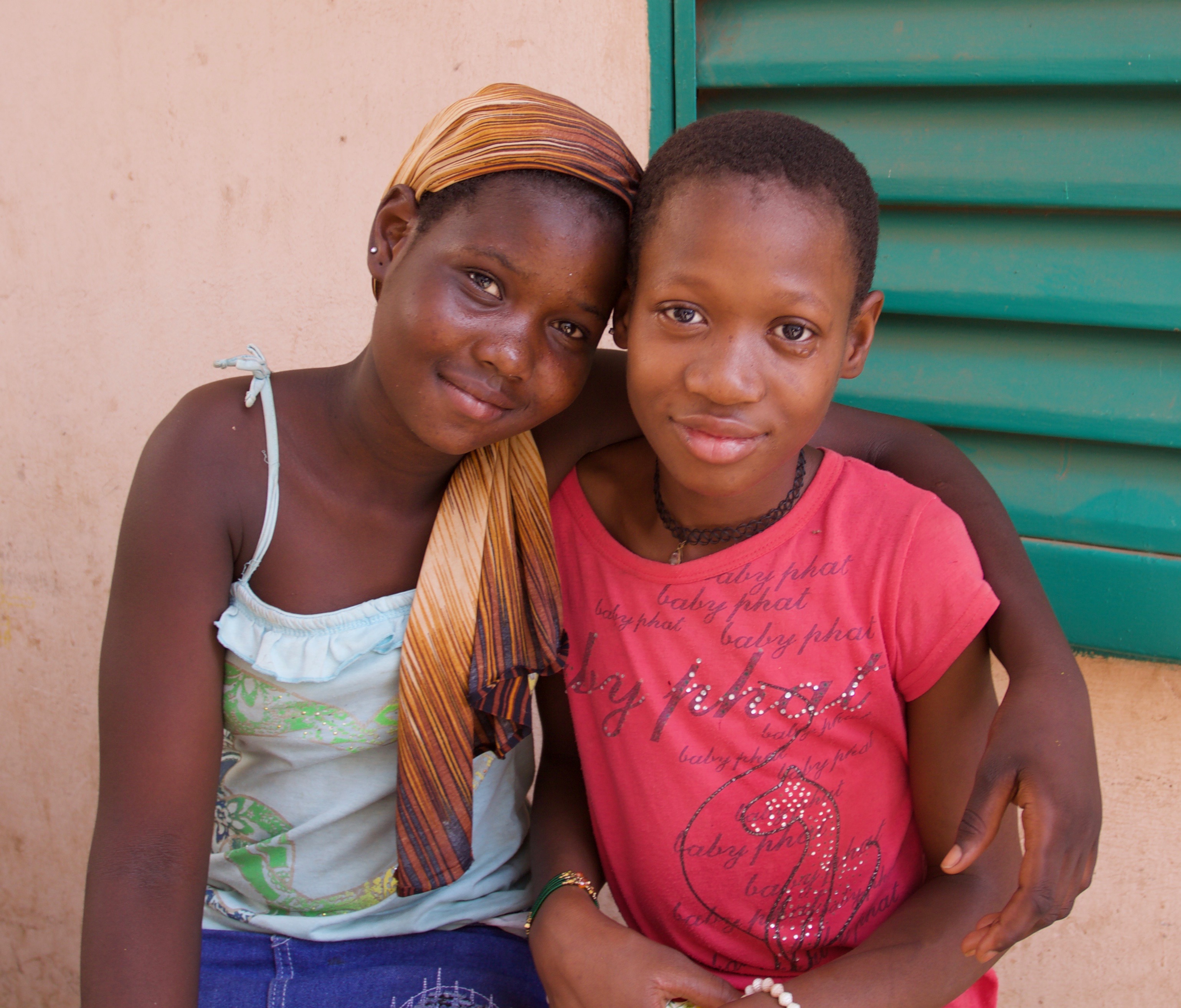 Family structure in Mali is patriarchal, and if HIV infection is discovered (potentially due to the death of a child), the blame often accrues to the women. Being discovered as HIV infected during pregnancy, even though the infection may have come from the husband, is extremely stigmatizing for the mother, who may lose her home and her child as a result. HIV infected children are also stigmatized.
Family structure in Mali is patriarchal, and if HIV infection is discovered (potentially due to the death of a child), the blame often accrues to the women. Being discovered as HIV infected during pregnancy, even though the infection may have come from the husband, is extremely stigmatizing for the mother, who may lose her home and her child as a result. HIV infected children are also stigmatized.
Up to 30 percent of girls do not attend school and work either at home or as domestics and street vendors. These activities put them at risk for early pregnancy and early marriage (a family solution to address the lack of resources for young women), and, consequently, HIV infection. First pregnancies and HIV acquisition often occur simultaneously, where extreme poverty and the absence of formal sex education leave women and girls with few options for pregnancy and HIV prevention. Poverty also constrains access to care, since most community clinics charge at least one dollar (more than the average daily income of poor women in Mali) for entry.
The Project
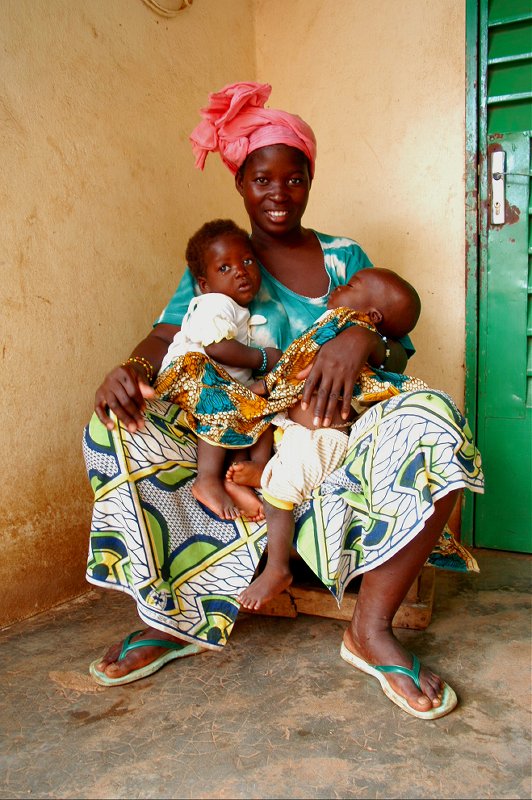 The goal of this program is to educate HIV-affected families, reducing stigma and increasing access to early HIV detection and prevention. GAIA Vaccine Foundation will develop a peer education program based on a new West African story cloth that illustrates how families can protect women, children, and families from HIV.
The goal of this program is to educate HIV-affected families, reducing stigma and increasing access to early HIV detection and prevention. GAIA Vaccine Foundation will develop a peer education program based on a new West African story cloth that illustrates how families can protect women, children, and families from HIV.
According to UNESCO, only 22.2 percent of women in Mali are literate. GAIA Vaccine Foundation and its community partners estimate illiteracy rates in Sikoro are 90 percent. By using a storytelling cloth as an instructive tool, GAIA Vaccine Foundation will offer education and healthcare resources to women and girls in Sikoro. Through this education, women and girls will be better able to make informed decisions about their health and will be more likely to seek healthcare and participate in education, health, and nutrition programs provided by the GAIA Vaccine Foundation-supported Hope Center Clinic in Sikoro.
The five key points on the storytelling cloth (easy to enumerate using the hand as a mnemonic) will include:
- Hope (Thumbs Up): Treatment for HIV infection is available and people do not need to die with HIV
- Identity (Index finger): Getting tested enables early treatment and reduced transmission to sexual partners and children
- Prevention (3rd finger): means of preventing HIV transmission are available such as condoms and pre-exposure prophylaxis (PreP)
- Family (ring finger): HIV transmission occurs within families and can be prevented
- The whole hand: Communities can work together to defeat HIV.
These five messages have been successful in previous GAIA Vaccine Foundation programs and unite all of GAIA Vaccine Foundation’s community-based activities.
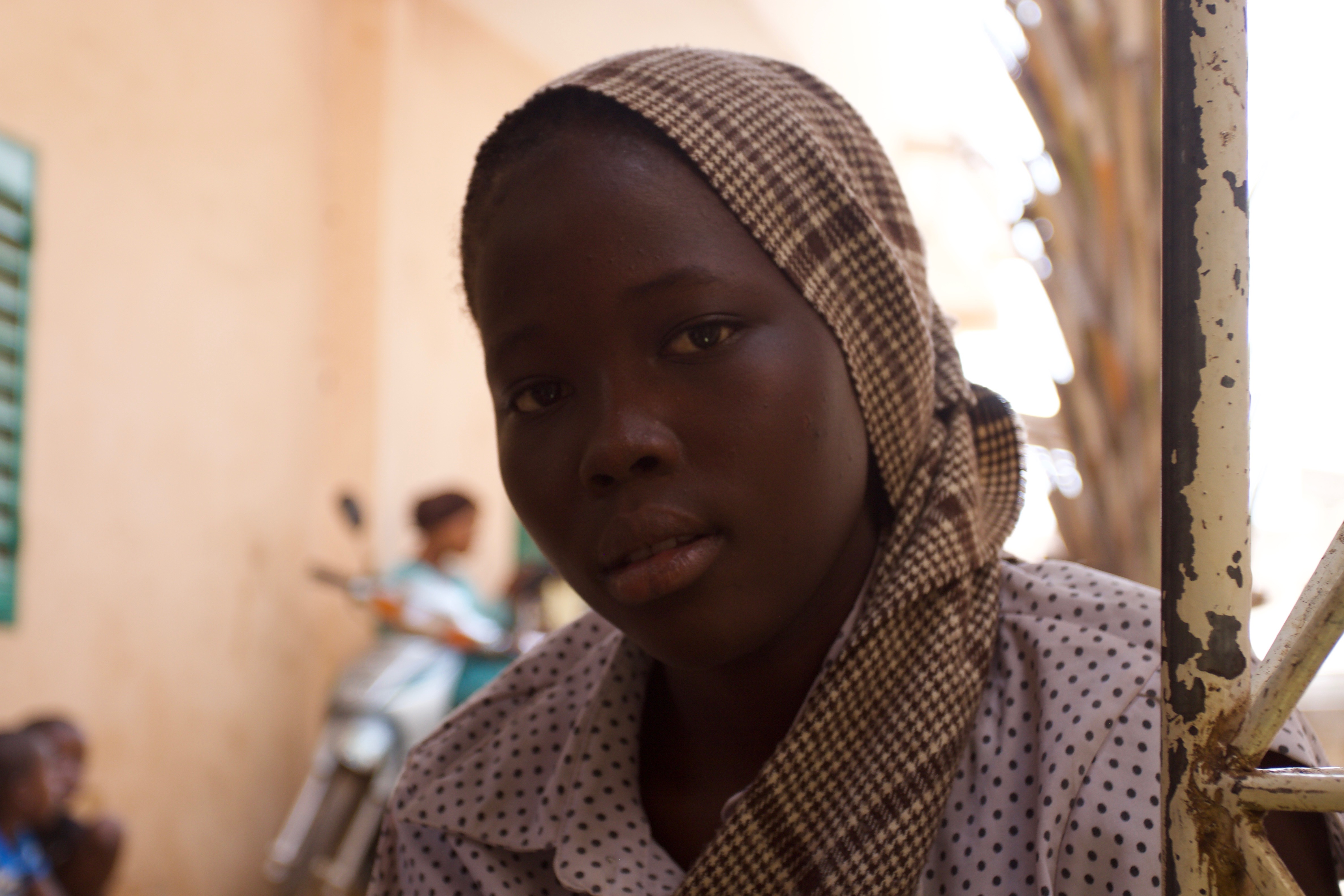 This project will be implemented through collaboration between GAIA Vaccine Foundation, The Community Health Association of Sikoro (ASACOMSI), the Community Clinic of Banconi (ASACOBA), and Espoir Association. The ASACOMSI is a center of excellence that delivers healthcare, health education, and training through the Community Health Clinic of Sikoro. ASACOBA provides community health care in Banconi, a densely populated neighborhood bordering Sikoro. Espoir Association is an association of HIV+ women whose mission is to ensure proper nutrition for HIV+ women, reduce HIV stigma, and provide community support for newly diagnosed community members through the Espoir Nutrition Program. Prenatal care, HIV testing, the Mother-to-Child-Transmission Program, the Teen Peer Education Program and the Espoir Nutrition Program take place at ASACOMSI, where healthcare providers, community workers, and the women of the Espoir Association will be wearing and speaking about the storytelling cloth.
This project will be implemented through collaboration between GAIA Vaccine Foundation, The Community Health Association of Sikoro (ASACOMSI), the Community Clinic of Banconi (ASACOBA), and Espoir Association. The ASACOMSI is a center of excellence that delivers healthcare, health education, and training through the Community Health Clinic of Sikoro. ASACOBA provides community health care in Banconi, a densely populated neighborhood bordering Sikoro. Espoir Association is an association of HIV+ women whose mission is to ensure proper nutrition for HIV+ women, reduce HIV stigma, and provide community support for newly diagnosed community members through the Espoir Nutrition Program. Prenatal care, HIV testing, the Mother-to-Child-Transmission Program, the Teen Peer Education Program and the Espoir Nutrition Program take place at ASACOMSI, where healthcare providers, community workers, and the women of the Espoir Association will be wearing and speaking about the storytelling cloth.
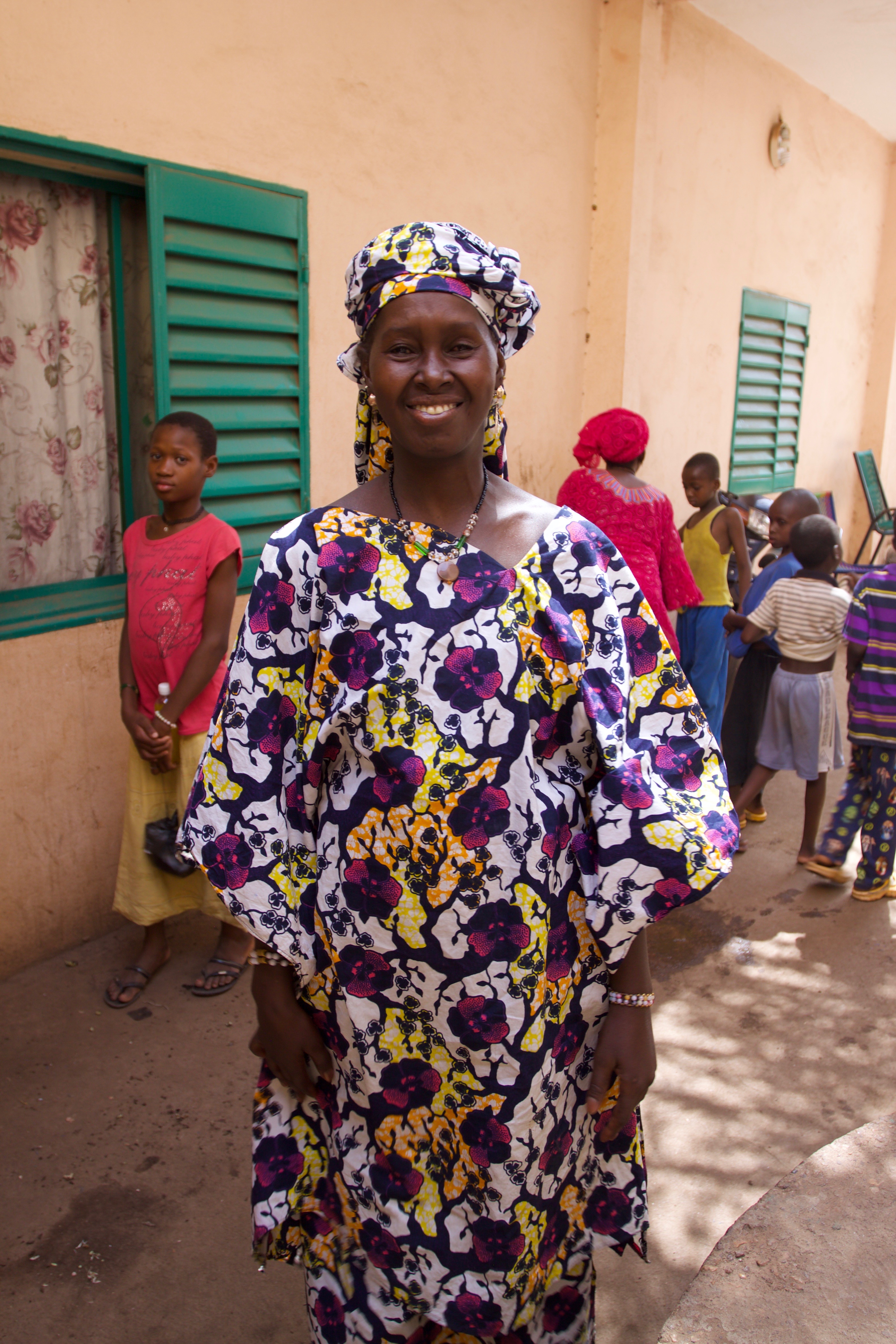 A prototype of GAIA Vaccine Foundation’s design for the HIV storytelling cloth has already been pilot-tested and approved by the women’s groups in Sikoro, and their suggestions and color preferences were incorporated in the design. This cloth will be offered to healthcare providers, the women of the Espoir Nutrition Program, the mentors for the Teen Peer Education Program and community healthcare workers, all of whom will be educated on the five themes and will wear the cloth to their jobs and programs. In addition, GAIA Vaccine Foundation will train five outreach workers who will participate in community gatherings on weekends, wearing the cloth and sharing the importance of HIV prevention.
A prototype of GAIA Vaccine Foundation’s design for the HIV storytelling cloth has already been pilot-tested and approved by the women’s groups in Sikoro, and their suggestions and color preferences were incorporated in the design. This cloth will be offered to healthcare providers, the women of the Espoir Nutrition Program, the mentors for the Teen Peer Education Program and community healthcare workers, all of whom will be educated on the five themes and will wear the cloth to their jobs and programs. In addition, GAIA Vaccine Foundation will train five outreach workers who will participate in community gatherings on weekends, wearing the cloth and sharing the importance of HIV prevention.
GAIA Vaccine Foundation anticipates that the incorporation of this storytelling cloth and five specific teaching points into their established programs will increase participation by at least 10 percent – and potentially by as much as 25 percent – in all of GAIA Vaccine Foundation’s program offerings. Higher rates of participation in these programs will reflect an increased awareness of HIV transmission, care, and prevention, as well as the reduction of HIV stigma.
Direct Impact: 4,500 Indirect impact: up to 25,000 community members
UN Sustainable Development Goals
![]()
![]()
![]()
Questions for Discussion
- How do you think the use of a storytelling textile can help fight HIV/AIDS in Mali?
- How do you think the patriarchal family structure affects the problem?
- How do you think the storytelling method of teaching will change the community?
How the Grant Will be Used
DFW’s grant of $50,000 for one year will be used for the following:
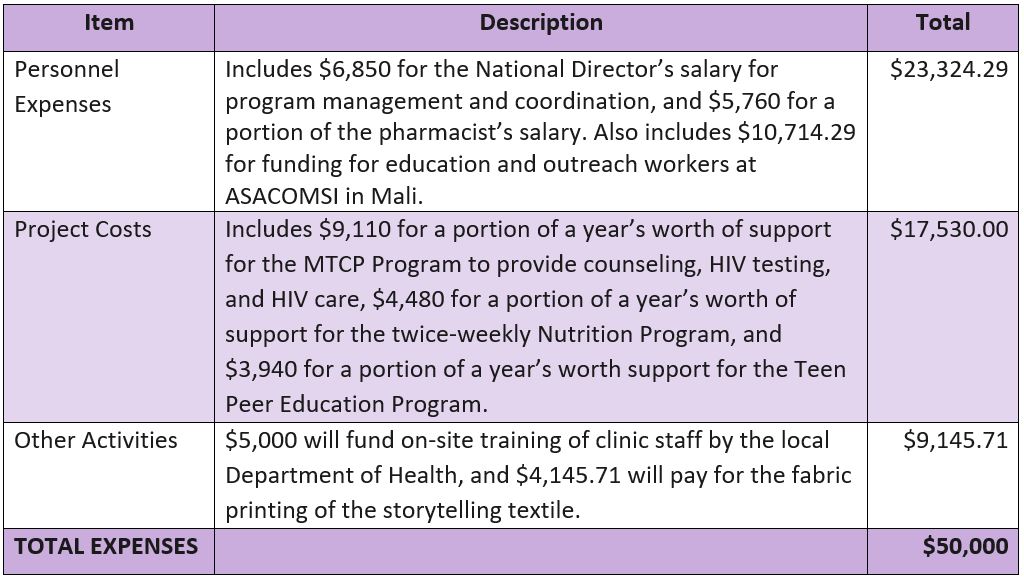
Why We Love This Project/Organization
GAIA Vaccine Foundation works in conjunction with social influencers, religious leaders, renowned musicians, nurses, and doctors involved in women’s health care. It engages, educates, and destigmatizes information on HIV/AIDS by using storytelling cloths illustrating information about HIV transmission. These cloths are a unique and effective health education tool for a mostly illiterate society.
Evidence of Success
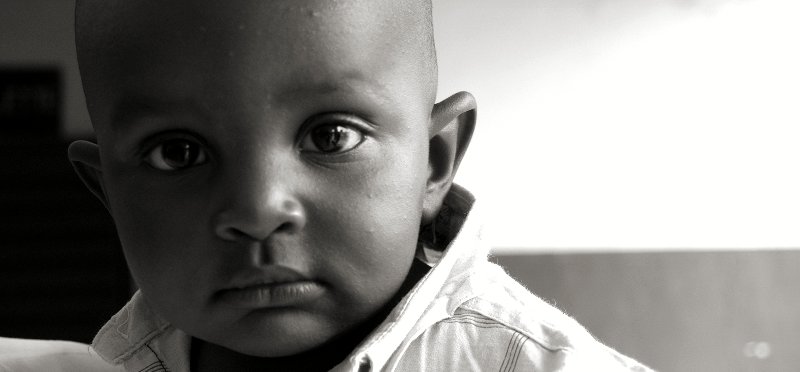
GAIA Vaccine Foundation has provided support for programs implemented by local community clinics that seek to build capacity and skill level of healthcare staff, increase access to healthcare for low-income Malians, and provide career advancement for Malian healthcare personnel through research collaborations.
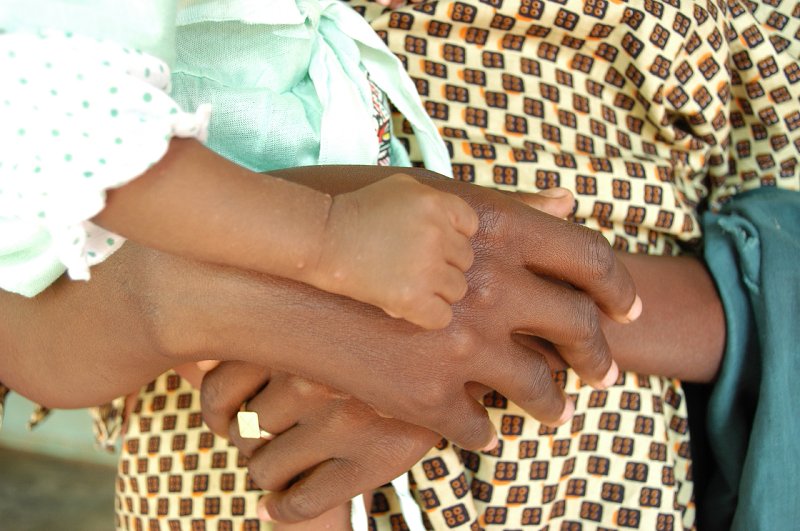 Since 2005, GAIA Vaccine Foundation has provided 20,093 women with prenatal care, 20,046 women with pre-natal counseling, and 19,590 women with HIV tests. Since 2009, GAIA Vaccine Foundation has provided free anonymous HIV tests to 1,014 men and 2,591 women. A total of 1,305 girls and 264 boys have attended the Teen Peer Education Program since its inception in 2014. Since 2015, 13,076 meals have been served to women and their families by the GAIA Vaccine Foundation-funded Espoir Association Nutrition Program. More than 8,000 women have been screened for cervical cancer during GAIA Vaccine Foundation’s two campaigns. Nearly 800 girls were vaccinated against HPV (cervical cancer) during the “Our Daughters, Ourselves” project. Nearly 300 HIV-infected patients are in care at the Hope Center Clinic. The programs conducted by GAIA Vaccine Foundation in collaboration with the regional health authorities have established the organization as a solid partner for improving health systems in Mali.
Since 2005, GAIA Vaccine Foundation has provided 20,093 women with prenatal care, 20,046 women with pre-natal counseling, and 19,590 women with HIV tests. Since 2009, GAIA Vaccine Foundation has provided free anonymous HIV tests to 1,014 men and 2,591 women. A total of 1,305 girls and 264 boys have attended the Teen Peer Education Program since its inception in 2014. Since 2015, 13,076 meals have been served to women and their families by the GAIA Vaccine Foundation-funded Espoir Association Nutrition Program. More than 8,000 women have been screened for cervical cancer during GAIA Vaccine Foundation’s two campaigns. Nearly 800 girls were vaccinated against HPV (cervical cancer) during the “Our Daughters, Ourselves” project. Nearly 300 HIV-infected patients are in care at the Hope Center Clinic. The programs conducted by GAIA Vaccine Foundation in collaboration with the regional health authorities have established the organization as a solid partner for improving health systems in Mali.
Voices of the Girls
“We live in a very underserved neighborhood where people are poor and illiteracy rates are over 90 percent. We have women and girls who have never gone to school. We even have young girls who are now mothers and are not able to continue their studies. We will keep working with GAIA to address these issues.”
-Rokia Sangare, a clinic administrator who leads adult literacy classes for women
About the Organization
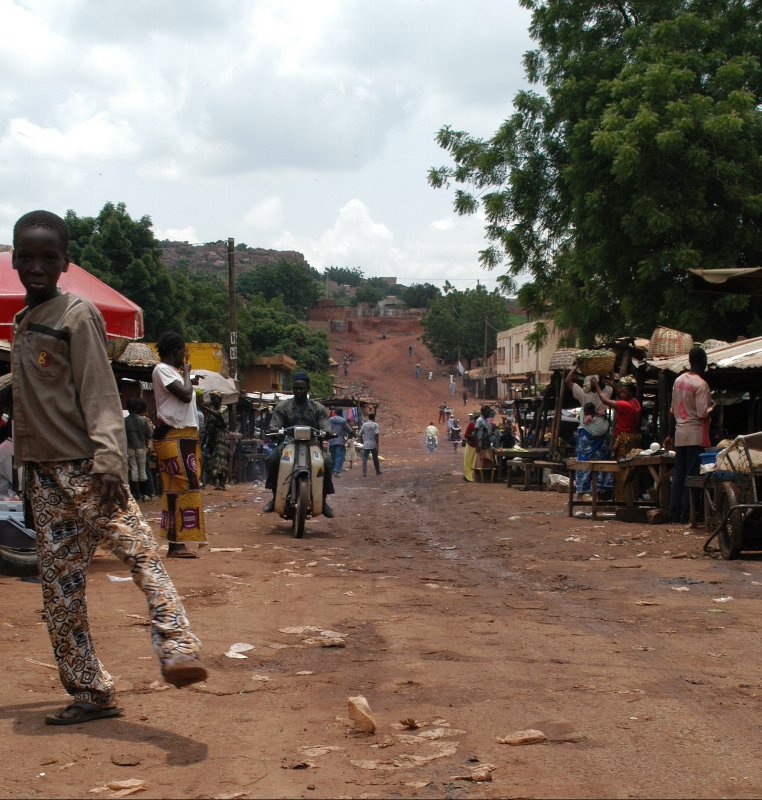 GAIA Vaccine Foundation was founded in 2001 by HIV expert Dr. Anne De Groot and members of the board to combat infectious diseases that disproportionately affect populations living in the developing world. Initially, GAIA Vaccine Foundation worked alongside other nonprofits in Mali to improve collaboration between HIV/AIDS focused organizations. Beginning in 2003, GAIA Vaccine Foundation initiated and sustained the annual “Journées Scientifique du VIH/SIDA,” where nonprofits shared information about state-of-the-art HIV treatment.
GAIA Vaccine Foundation was founded in 2001 by HIV expert Dr. Anne De Groot and members of the board to combat infectious diseases that disproportionately affect populations living in the developing world. Initially, GAIA Vaccine Foundation worked alongside other nonprofits in Mali to improve collaboration between HIV/AIDS focused organizations. Beginning in 2003, GAIA Vaccine Foundation initiated and sustained the annual “Journées Scientifique du VIH/SIDA,” where nonprofits shared information about state-of-the-art HIV treatment.
In 2005, having observed that many state-of-the-art techniques to prevent HIV/AIDS transmission to vulnerable women and children were not being implemented in Mali, GAIA Vaccine Foundation and the In-Country Director, Salamatou Alzouma, a young Doctor of Pharmacy student from the University of Bamako, requested permission from the Regional Department of Health in Bamako Mali to start a pilot program in a local community clinic to prevent Mother to Child HIV transmission (MTCTP). This launched GAIA Vaccine Foundation’s partnership with the Community Health Association of Sikoro (ASACOMSI) in Bamako where the MTCTP program was established. GAIA Vaccine Foundation and the ASACOMSI have had a continuing and collaborative partnership for the past 13 years. GAIA’s collaboration with local community clinics recently expanded to include the Community Clinic of Banconi (ASACOBA).
Where They Work


Among the 25 poorest countries in the world, landlocked Mali depends on gold mining and agricultural exports for revenue. The country’s fiscal status fluctuates with gold and agricultural commodity prices and the harvest. Cotton and gold exports make up around 80 percent of export earnings. Mali remains dependent on foreign aid.
Mali’s total population is expected to double by 2035. Its capital, Bamako, is one of the fastest-growing cities in Africa. A young age structure, a declining mortality rate, and a sustained high total fertility rate of 6 children per woman – the third highest in the world – ensure continued rapid population growth for the foreseeable future. Significant outmigration only marginally tempers this growth. Despite decreases, Mali’s infant, child, and maternal mortality rates remain among the highest in sub-Saharan Africa because of limited access to and adoption of family planning, early childbearing, short birth intervals, the prevalence of female genital cutting, infrequent use of skilled birth attendants, and a lack of emergency obstetrical and neonatal care.
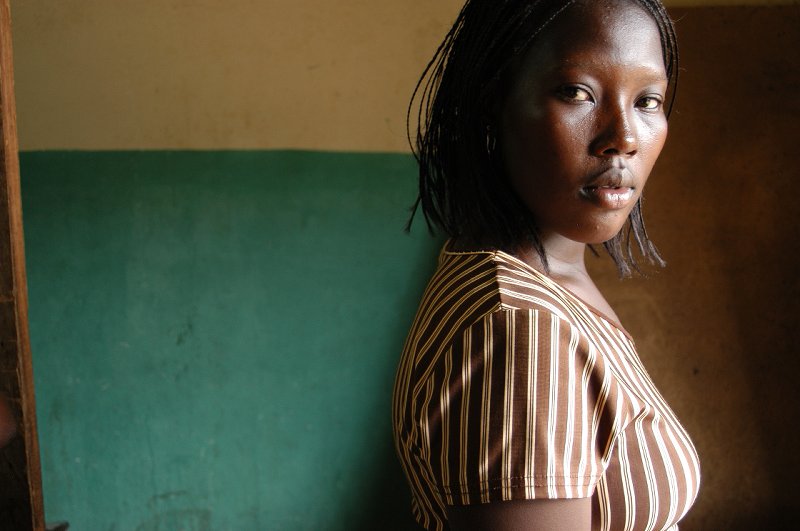 Mali’s high total fertility rate has been virtually unchanged for decades, as a result of the ongoing preference for large families, early childbearing, the lack of female education and empowerment, poverty, and extremely low contraceptive use. Slowing Mali’s population growth by lowering its birth rate will be essential for poverty reduction, improving food security, and developing human capital and the economy.
Mali’s high total fertility rate has been virtually unchanged for decades, as a result of the ongoing preference for large families, early childbearing, the lack of female education and empowerment, poverty, and extremely low contraceptive use. Slowing Mali’s population growth by lowering its birth rate will be essential for poverty reduction, improving food security, and developing human capital and the economy.
The median age in Mali is 15.8 years. The average age for mothers to have their first child is 18.9 years. The maternal mortality rate is 562 deaths/100,000 live births, and the infant mortality rate is 67.6 deaths/1,000 live births. Life expectancy is 60.8 years.
The literacy rate for the total population is 33.1 percent, with 45.1 percent of males being literate and just 22.2 percent of females being literate.
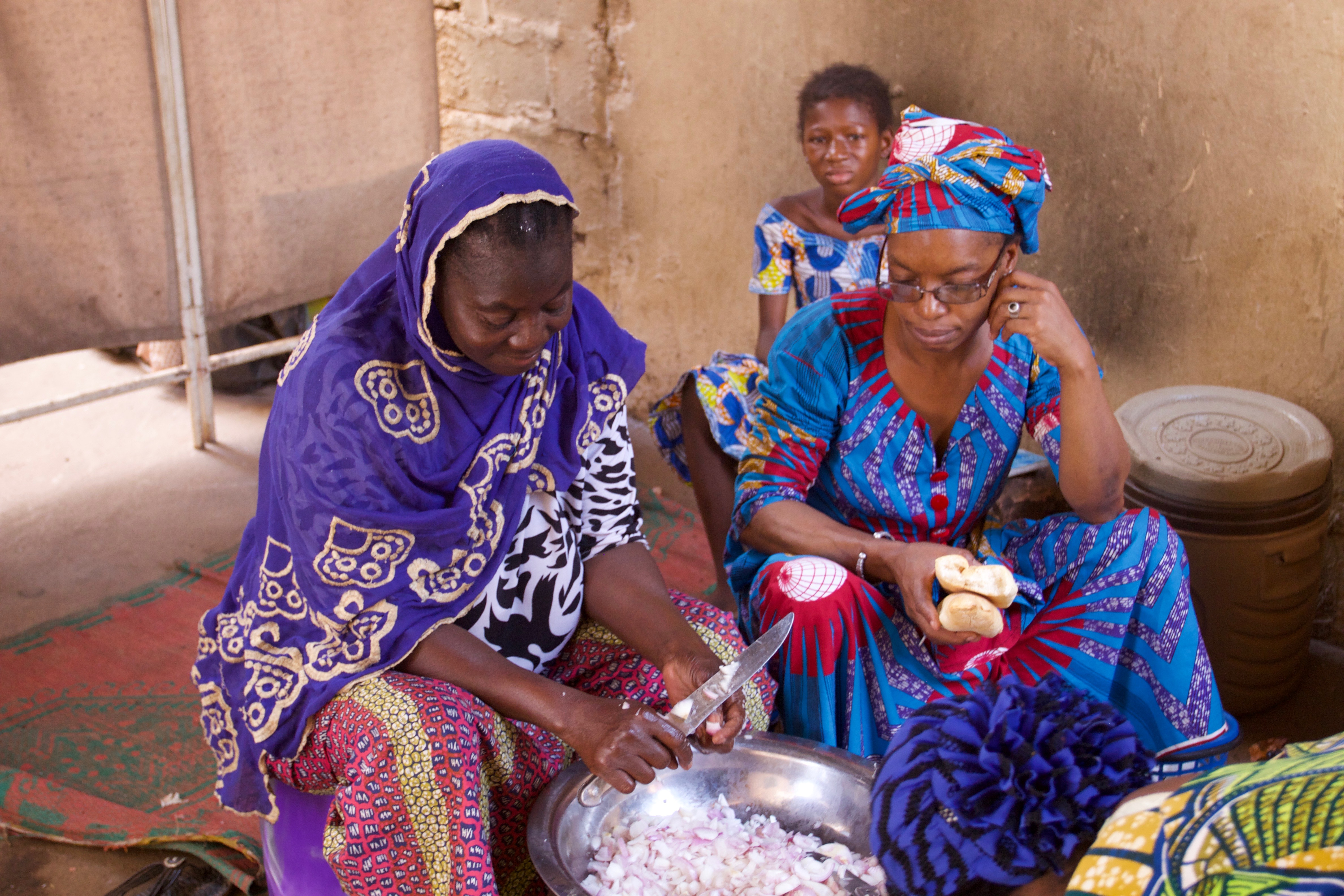 A Closer Look at How the Power of Storytelling Can Affect Health Change
A Closer Look at How the Power of Storytelling Can Affect Health Change
GAIA Vaccine Foundation is using a storytelling textile to teach about HIV/AIDS in Mali. Stories have been used to hand down learning and knowledge for thousands of years. In healthcare, stories are proving to be a useful tool in engaging and educating people. Stories take many forms, but they usually have some elements in common. Rather than a list of dry facts, stories have a narrative or sequence and they introduce people or characters.
Convincing someone to make a health change is not easy. People need to be persuaded to make the decision, and presenting the facts alone is not enough in most situations. Studies have shown that storytelling can be an effective tool in health education.
*Note that GAIA Vaccine Foundation is a different organization than GAIA (Global Aids Interfaith Alliance), a 2018 DFW Featured Grantee.
Source Materials
